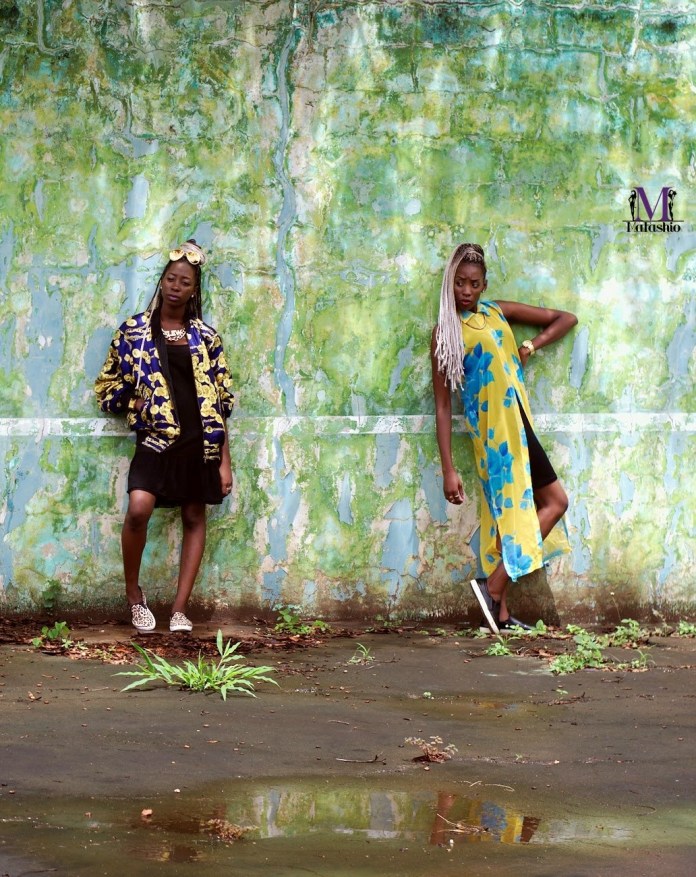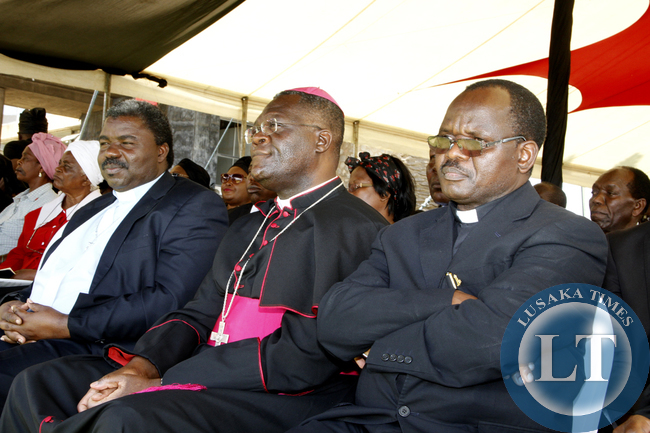
MaFashio is the brain child of sisters Sekayi and Tukiya Fundafunda, both of whom are makeup artists, bloggers, fashion stylists and thrift junkies. On a Mission to highlight the everyday persons fashion prowess, provide a platform for Zambian designers, models and fashion lovers.
KAPA187: What does MaFashio mean and how did it come about.
MaFashio: MaFashio is a play on a Zambian colloquial terminology used to refer to somebody whose dressing has made an impression on the observer. With this in mind, MaFashio came about because we have always been interested in fashion as an art and a way of expression,we therefore wanted a way to show how Zambians express themselves through fashion – to the world.
KAPA187: What made you fall in love with the world of fashion?
MaFashio: We grew up around art and fashion, having very creative parents, and so we’ve come to believe that it came naturally to be so drawn to it.
In addition to that, fashion is fascinating because of the way it can evoke emotion even where no words are spoken.
KAPA187: Who are some of your favourite designers and why?
MaFashio: We are really big fans of the brave, beautiful and well-tailored and among these are Zambian designers Debbie Chu, Kutowa Designs and Kamanga Wear’s ‘ready-to-wear’ fashion style. Internationally we are fans of Elie Saab and Alexander Wang.

KAPA187: Would you consider Zambians to be fashionable people?
MaFashio: Definitely! Zambian’s are relatively new to the idea of fashion as an industry that could add significantly to the economy, but, are a very colourful, artistic people and are in this way very fashionable.
KAPA187: What constitutes Zambian fashion?
MaFashio: Zambian fashion, we believe, is a mix and match of modernity – with reference to current styles – and a placement of high esteem on classic African fabric and design.
KAPA187: How is the Zambian fashion industry performing, who are the major players?
MaFashio: The fashion industry is growing; this is undeniable, with several more designers, models, and say, fashion bloggers, than there were just over five years ago. We like to believe that it is important to grow at a steady pace, which we believe we are doing as an industry. We always make reference to New York Fashion Week, one of the most spoken about and respected fashion weeks in the world, it was started in 1943! They have undergone lots of transformation and innovation over the years to get to that stage, and that’s exactly what is happening here in Zambia.
The major players, these would have to be everybody – as corny as that may sound – that is making the specific effort to add to the industry as a whole, the Fashion Designers, Models, and Photographers, and the fashion journalists – who come in every form.
KAPA187: In your opinion what needs to be done to improve the industry.
MaFashio: Several steps must be taken to grow our industry, and in the time that we have been a part of it, we have come to realise how important it is to work together for the greater good – egos aside, and get the job done! That makes your industry appear and actually become more mature.
Secondly, a real desire to see growth in the industry, and therefore do our research to see how more advanced nations work to see their projects succeed. We had the privilege of travelling to Stockholm, Sweden, with members of the Zambia Fashion Council, and this exposed us to how large industries such as the Swedish fashion industry conduct themselves, how they take networking and innovation so seriously to achieve desired results.
These and many other actions, are what we believe need to be taken to see our industry grow beyond this point.
KAPA187: Are Zambian designed outfits readily available or are they mostly custom made for individuals?
MaFashio: We are proud that now we can say Yes! This is because Zambia now has an emporium that stocks solely Zambian designed clothing. This coupled with platforms such as social media make it easy for the readily available outfits to be advertised to the Zambian public.
KAPA187: To the novice it may seem that all Zambian designers work mainly with chitenge material, is that a true reflection?
MaFashio: To some degree, Chitenge is still the most popular fabric used in design – this can be observed during Zambia Fashion Week – but, there’s been a rise in the use of other fabrics among designers.
KAPA187: Apart from blogging you are also make-up artists, fashion stylists. Tell us more about that.
MaFashio: Makeup Artistry and Styling are two fields of fashion that we’ve always been interested in – from childhood – and they felt like a natural progression from our celebration of Zambian fashion on the blog.
Through makeup artistry we seek to reintroduce our clients to the beauty they already possess. Wardrobe Styling is the part of MaFashio that seeks to assist in trend spotting, personal shopping and wardrobe organization for the closet Fashionista or the fashion novice. We are also always glad that we can be creative with it and implement our makeup artistry and wardrobe styling in everything from music videos to commercials.
KAPA187: In the western world i.e. USA, UK etc and even here in Africa in countries like Nigeria and South Africa, people are able to make a good living being designers , stylists , make-up artists . What is the situation like in Zambia?
MaFashio: Yes and No, the Zambian fashion industry is still monopolized by foreign brands (in the case of designers) and the idea of having styling and makeup professionals is still a subject many are unsure about, hence it would not be ones go-to career choice, but, as with the industry as a whole, this is slowly changingand with many seminars and workshops, and with social media, many are learning and putting into practice formulas that can make these career paths worth the struggle.
KAPA187: As fashion bloggers what trends have you seen to be popular in this particular season?
MaFashio : As we are now transitioning into winter, we will see the camel coat – which was popular among fashionistas in the rest of the world this past winter; knit dresses and the old faithful, knee-high leather boots.
KAPA187: Anything else you would like to add.
MaFashio: We look forward to speaking to you in the not so distant future about the booming Zambian fashion industry. In the meantime, watch this space.

Interact with MaFashio on social media:
www.mafashio.co.zm
www.facebook.com/mafashio
www.twitter.com/mafashio
www.instagram.com/mafashio_zambia
BY KAPA187























